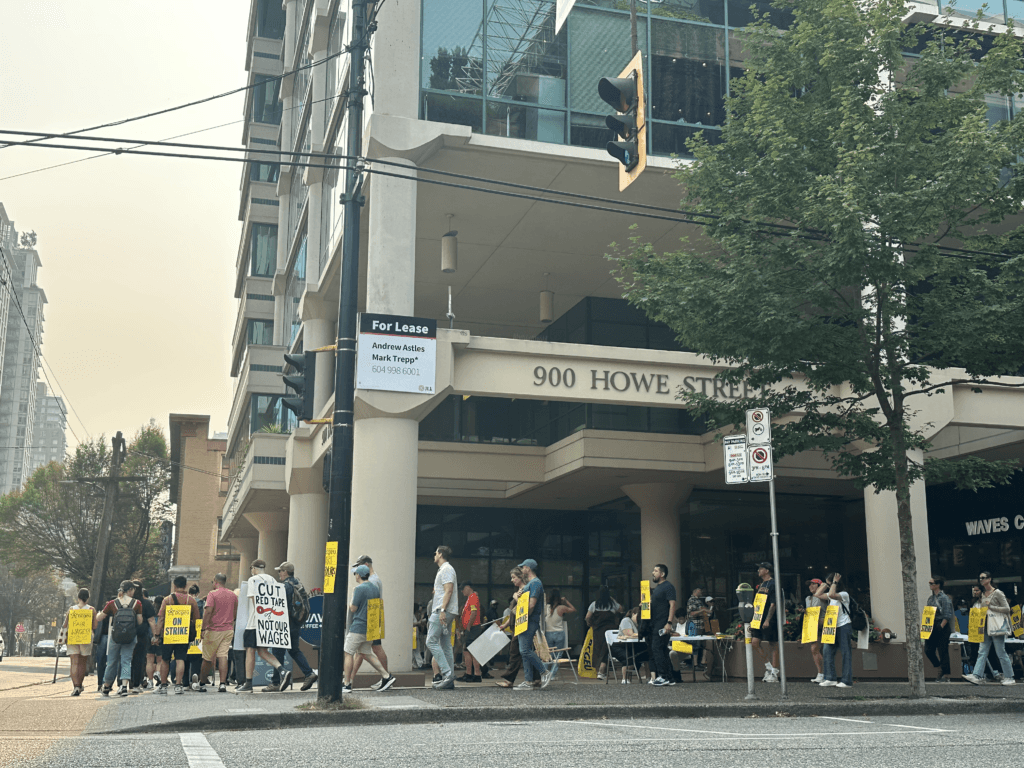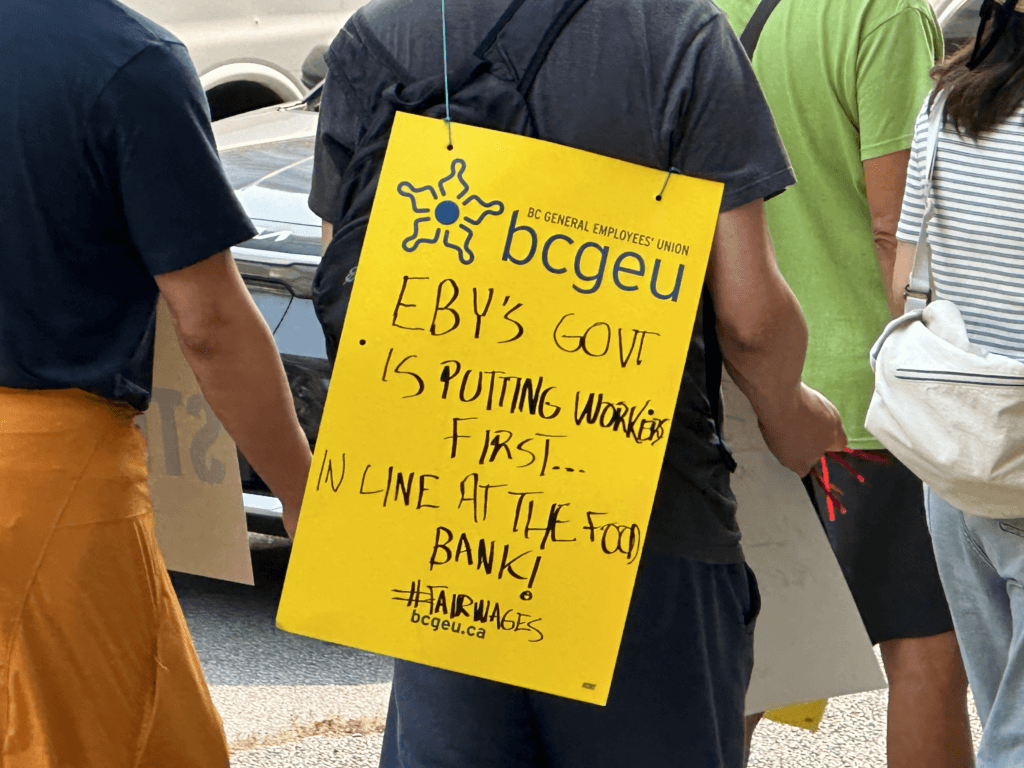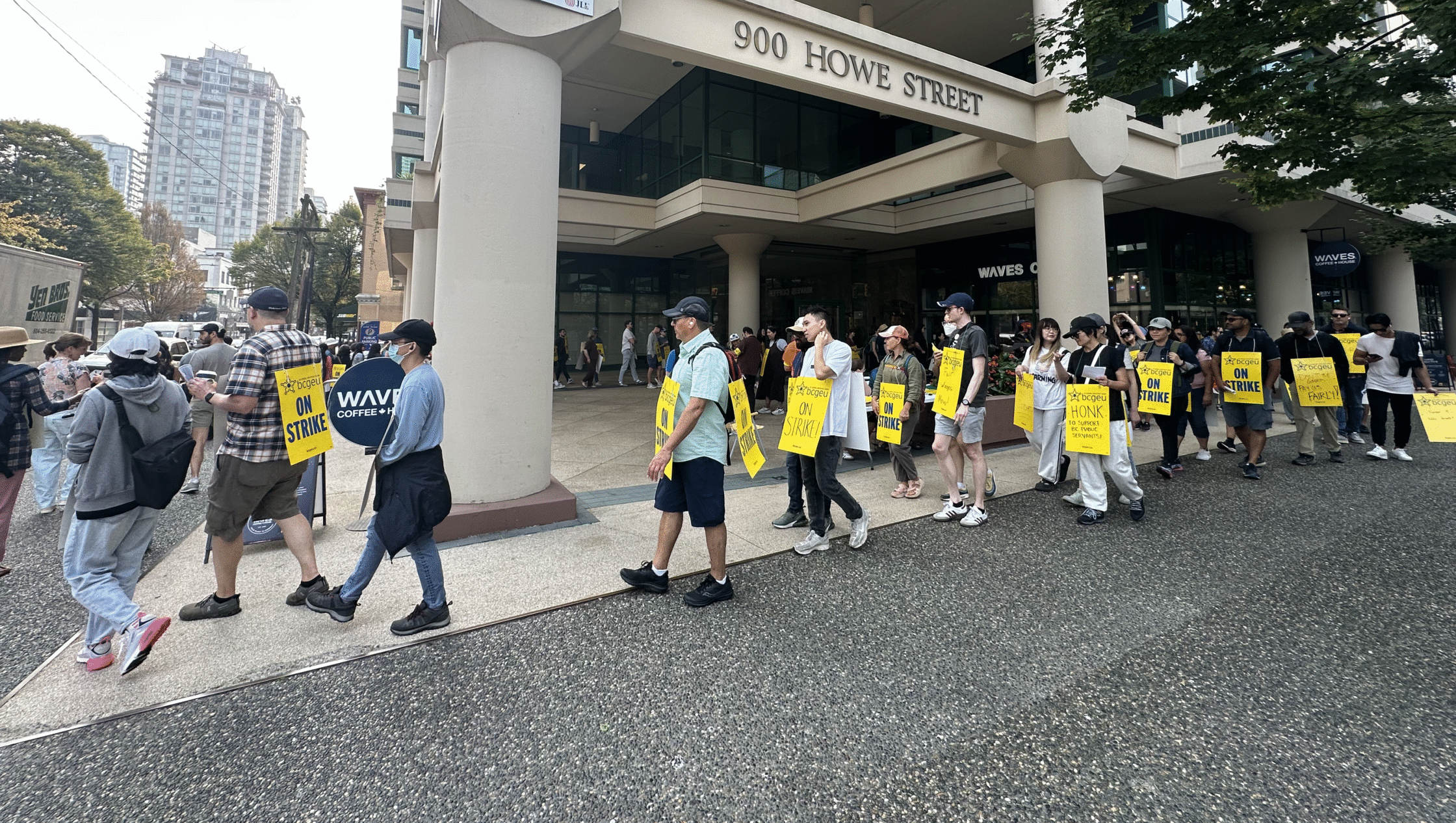Picket lines are expanding in strength and scope as workers in B.C.’s largest public sector union seeks to force the provincial government to the bargaining table. Demands over wage increases have been the major issue as the cost of living crisis continues.
The BC General Employees’ Union (BCGEU) Public Service bargaining unit has expanded their picket lines to 22 locations and 4,000 workers across the province in an effort to get the Public Service Agency to meet its demands. Central to contract negotiations have been an increase in wages to keep up with the rising cost of necessities. For its part, B.C.’s NDP government has blamed tariffs, their $10 billion budget deficit, and “fiscal headwinds” for its refusal to meet the workers’ demand.
Talks between the union and the Public Service Agency began in January and broke down in July over how to resolve the ongoing “retention and recruitment crisis.” A strike vote was held from August 11 to 29. Over 86% of workers voted, with 92.7% in favour of a strike.
Job actions started on September 2. Mainly administrative professionals in three cities—Victoria, Surrey and Prince George—went on strike and picketed core government services Monday through Friday from 9:00 a.m. to 5:00 p.m. The scope of job actions has since expanded twice to now include locations in 12 towns and cities across the province.

B.C.’s Ministry of Finance released a report on September 8 in which it seeks to portray the union’s demands as amounting to pay increases three times the rate of inflation, or 15.75% over two years. BCGEU President Paul Finch says the report is inaccurate, that “the government’s attempted some creative math here” to mislead the public and that “the budgetary deficit was made through political choices and can’t be solved on the backs of workers.”
The Union’s Demands
The 34,000-member-strong bargaining unit is the largest in the BCGEU (which represents 95,000 workers across 550 units), covering workers across 32 government ministries, departments and agencies in areas including transportation, education, finance, forestry and infrastructure.
The BCGEU’s main demands include an 8.25% wage increase over two years, fair access to remote work, and a limit on non-union or “excluded positions”—often managerial positions—and a promise to “protect union jobs.”
According to the BCGEU’s self-published report, the province’s public sector wages consistently lag behind those of private sector workers in B.C., as well as those of other public sector workers across Canada. In B.C., the average public sector worker makes 2.7% less than the average private sector worker, and across Canada, BCGEU member wages are up to 20% lower than public sector workers in other provinces.
The government’s emphasis on “hiring management instead of frontline positions” has also been a point of contention for the BCGEU. From 2010 to 2024, the number of B.C. public service management experienced a 51.9% growth—more than double the growth than that of BCGEU membership during the same timeframe.

Pitting Workers Against Taxpayers
In a statement on September 4, the Premier David Eby said that boosting wages would not be a fair cost to taxpayers. The premier’s justification for their offer of a 3.5% wage increase over two years, less than half of what the union is asking for, is that with U.S. tariffs, the government is “facing big fiscal headwinds … we’re going to have to work together and find a fair deal, be creative, but respect taxpayers as well.”
The North Star visited BCGEU picket lines following Eby’s statements to the media. Workers expressed anger that they were being pitted against other working people by the leader of a supposedly pro-worker political party. Picketing workers carried signs reading, “We’re taxpayers too!” and “Eby’s govt is putting workers first … in line at the food bank!”
Since the strike began, the BCGEU has been mainly picketing government buildings to minimize disruption for the rest of the public. However, with two escalations in the size and scope of pickets within a week of the strike’s beginning, Paul Finch has stated that “everything is on the table” if the government does not meet the union’s demands.
Contracts for 400,000 public workers expired in 2025. The public service sector negotiations constitute the largest battle of the six sectoral agreements that the union is leading this year. According to BCGEU’s website, “Negotiations for the Health Facilities agreement, Community Health agreement, Health Science Professionals agreement and Community Social Services agreement are ongoing. Dates are still to be set for post-secondary agreements.”


Be part of the conversation!
Only subscribers can comment. Subscribe to The North Star to join the conversation under our articles with our journalists and fellow community members. If you’re already subscribed, log in.